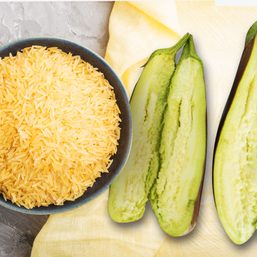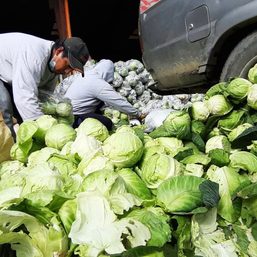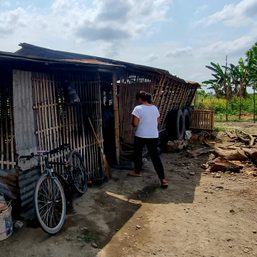SUMMARY
This is AI generated summarization, which may have errors. For context, always refer to the full article.
![[OPINION] Palaging pagod at palaging hirap: The story of the Philippine farmer](https://www.rappler.com/tachyon/2020/10/ispeak-1.jpg)
Our farmers struggle with a history of injustice. They have been forced to till land they do not own, sell their produce at prices unequal to their labor, and carry a whole sector on their already aching backs – for a country that has forgotten to listen to them properly. As our country strives to move forward, we have forgotten to bring its foundation along.
Our farmers have worked too hard to provide for their families and their countrymen, only for them to be continuously robbed by our government of adequate policy, support, and protection.
The past: Inadequate policy
It is peculiar how we brand ourselves as an “agricultural country” when we are largely dependent on imports for produce. Although there are campaigns to “support local,” the nature of these campaigns do not at all address the problem grounded in ineffective structural policies.
For over 30 years, the Philippine government has struggled to implement the land reform it has promised for redistributive welfare. Over time, the political impetus for this has reduced, evident in the diminishing budget allocation from 0.44% of our GDP in 1988-1991 to just 0.15% of our GDP in 2010-2016.
It seems that because agriculture is so overlooked and is thus not a winning election issue, our leaders have simply forgotten our farmers. This rippled into investments for a more competitive agricultural sector, but with bureaucracy resulting from poor implementation of agrarian reform in the way.
This is not an unfamiliar problem. In 2018, a group of farmers from Negros Occidental gathered in front of the gates of the Department of Agrarian Reform only for them to be turned away by the security guard, who told them: “Wala pa si Secretary dito. Baka na-traffic.” One can only imagine how painful it is to be forgotten and rejected all over again.
This is but one instance in a long history of neglect. In 2012, Philippine farmers were the least mechanized in Southeast Asia, using only “the equivalent in power of a small electric fan per hectare of farmland,” leaving the rest to sheer manpower. It is upsetting to know that this full day’s work could have been made easier if our officials had fulfilled their promise of development.
Instead of executing more effective and sustainable policies (such as block farming), the Department of Agriculture has only given band-aid solutions to long-term problems — dole outs and insufficient capital for increased farming capacity. The sum of all these inadequacies and more trap our farmers into a life of “subsistence farming” – living from paycheck to paycheck, where one bad harvest season could mean starvation and poverty for their families. The problem is systemic and cyclical, and it demands a systematic solution.
The present: Insufficient support
Our past agriculture problems are so grave, their impacts are still very much felt in the present. Let’s look at how people in authority have responded:
The most recent response to these problems was the Rice Tariffication Law, which promised a more competitive (and fairer) market and increased aid for our farmers. In 2019, Senator Villar said this was necessary to have affordable staple food, to increase our competitiveness in the global market, and to provide equipment to farmers through the Rice Competitiveness Enhancement Fund (RCEF).
In 2020, farmers have yet to feel the support of the law. This is a concrete manifestation and continuation of inadequacy. With a low tariff of 35%, 3 million tons of rice were imported by big corporations within months of the law’s passing. This left our local supply homeless in our own country. Farmers were literally left with no choice but to sell rice for as low as 7 pesos a kilo, while corporations dominated huge commercial outlets.
Aside from these problems, the promise of mechanization and seed assistance from the RCEF is empty. This is possibly because the mechanisms for it were not even in place yet when the law was passed. Why does it feel like the plan is being made up as we go?
In response to the pandemic, the Department of Trade and Industry (DTI) allowed the passage of food products to and from Luzon to ease the weight of travel restrictions for farmers. However, they would need to present an IATF ID, which could only be acquired online. We are now confronted with these questions: What about those farmers who do not have access to the internet? What about those farmers who are not adept or familiar with the processes (and even with technology itself)? It feels as though being able to sell products for a living has become a privilege.
Upon reflection of the past and the present, the question has transformed from “Did the government do anything?” to “Is what the government doing enough? And more importantly, are these the proper and meaningful solutions?”
The future: A call for protection
There have been obvious cries for help that have been met with violence: the Mendiola Massacre in 1987, the Hacienda Luisita Massacre in 2004, the Kidapawan Protests in 2016, and more. The “Bigas Hindi Bala” slogan is haunting only because it is too real. Not only have people in power excluded our farmers, but they have also killed them. In the name of human development, which comes with the promise of speed and efficiency, our farmers have been left out almost deliberately.
These stories of oppression continue (and even worsen) today. We have stood idly by for too long. Without the backbone of our economy and of Filipino life, the nation will collapse. Without meaningful improvements in our treatment of farmers, our country will continue to find itself stuck in cycles of oppression. It will be a long and slow process from here, nothing nearly as quick as what we’re accustomed to.
These are unprecedented times: of continuing widespread corruption, of weakly enforced government policies, and of people hoarding basic necessities. May we never overlook the reason we have these necessities in the first place, for a depressing irony exists: those who provide our basic needs have, for too long, not been afforded their own. – Rappler.com
Maeca Czarina Pansensoy is a BS-Management Honors student at Ateneo de Manila University. Although you can usually find her studying in a Starbucks branch along Katipunan, she’s now quarantined like everyone else – opening her eyes to realities outside of her laptop screen. She hopes to open your eyes as well.
Add a comment
How does this make you feel?

![[PODCAST] I’ve Got An Opinion: Farming can be a great career](https://www.rappler.com/tachyon/2020/10/ive-got-an-opinion-sq-1.jpg?fit=449%2C449)



![[ANALYSIS] Investigating government’s engagement with the private sector in infrastructure](https://www.rappler.com/tachyon/2024/04/tl-gov-private-sectors-infra-04112024-1.jpg?resize=257%2C257&crop=435px%2C0px%2C1080px%2C1080px)

There are no comments yet. Add your comment to start the conversation.